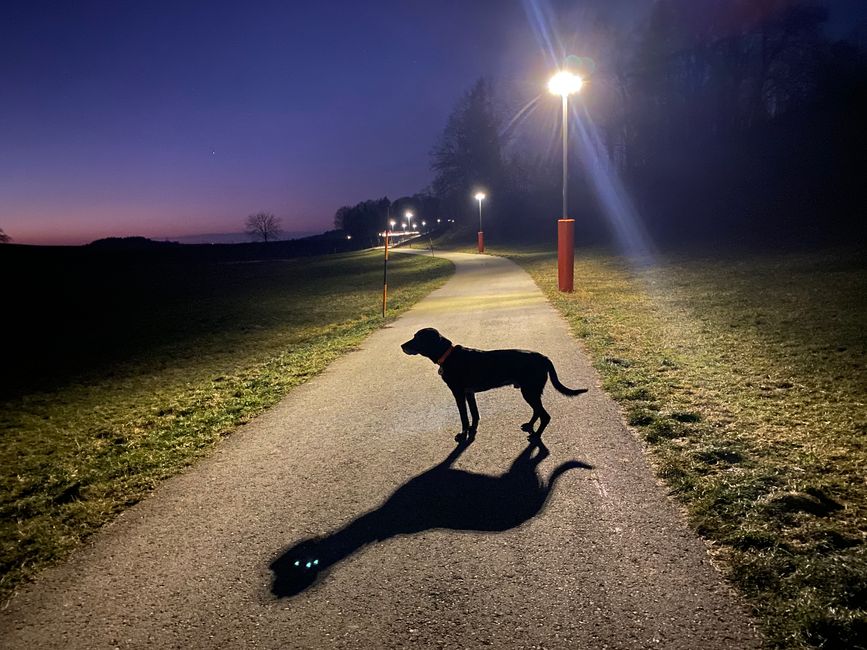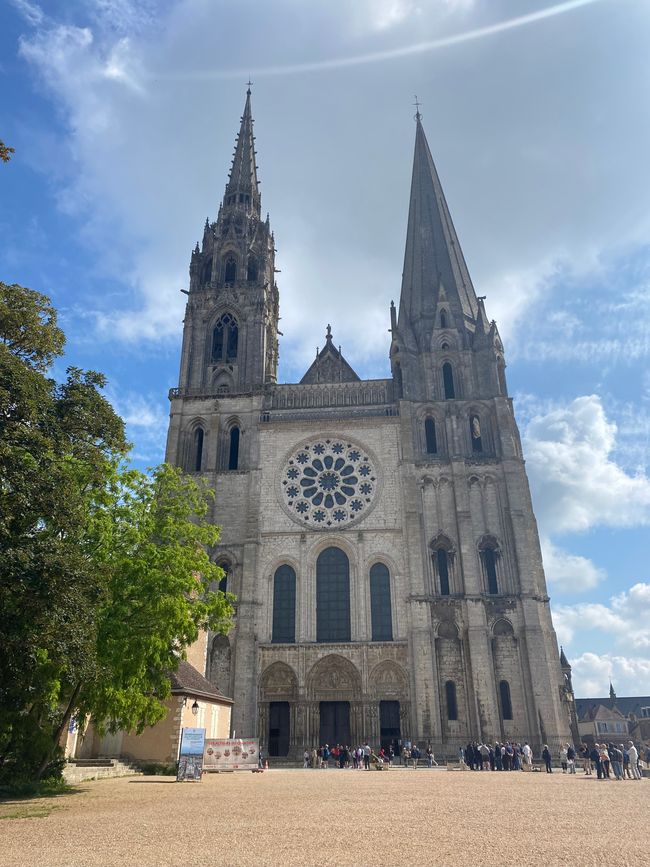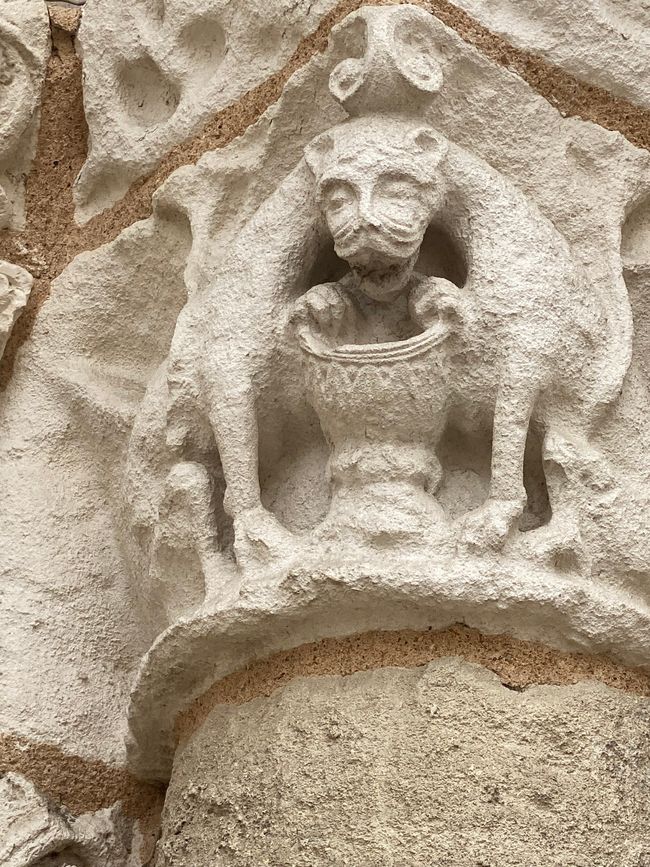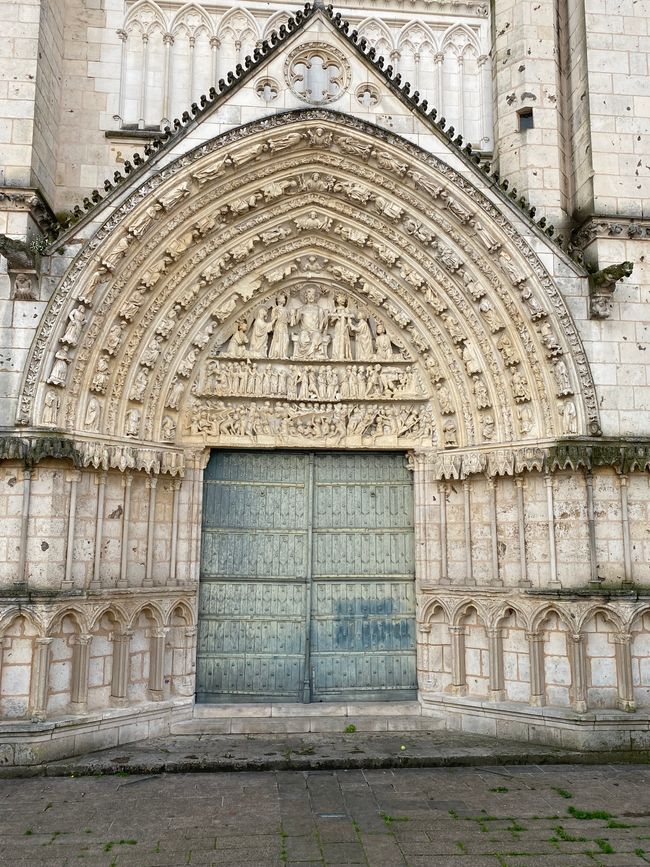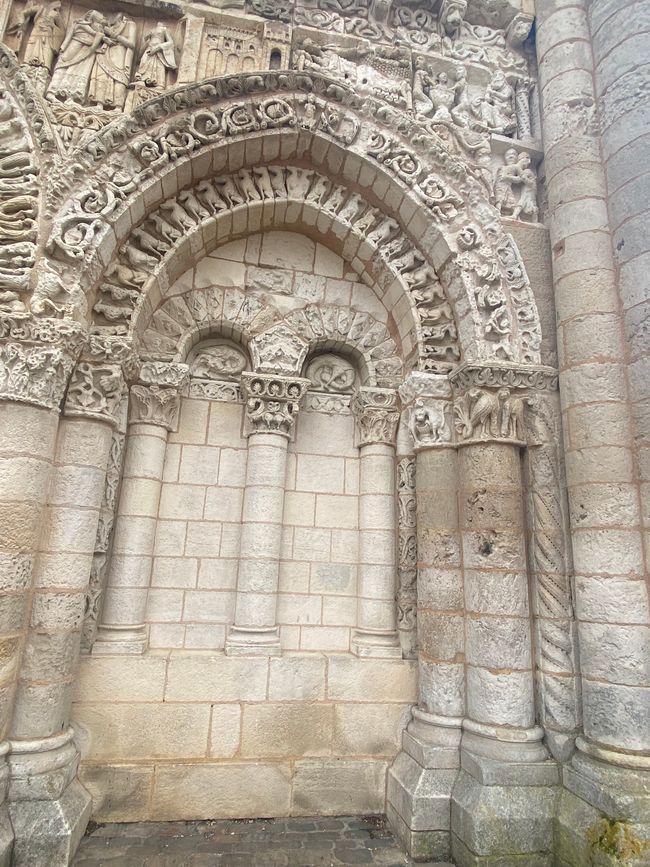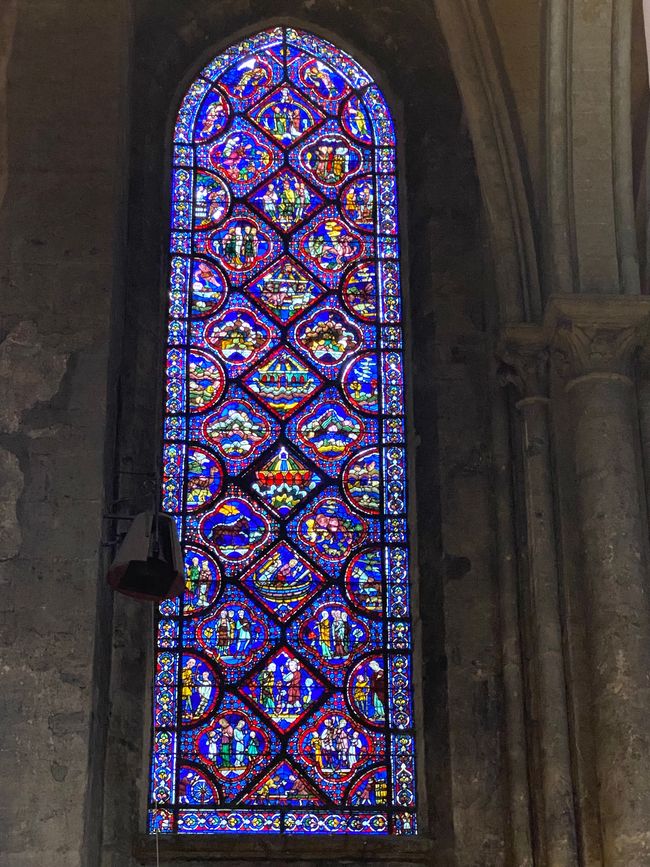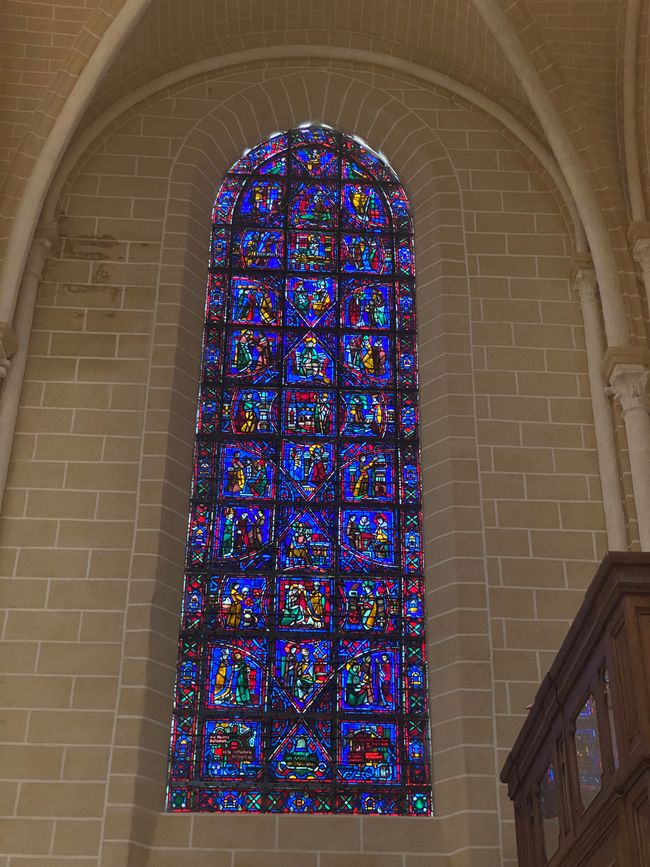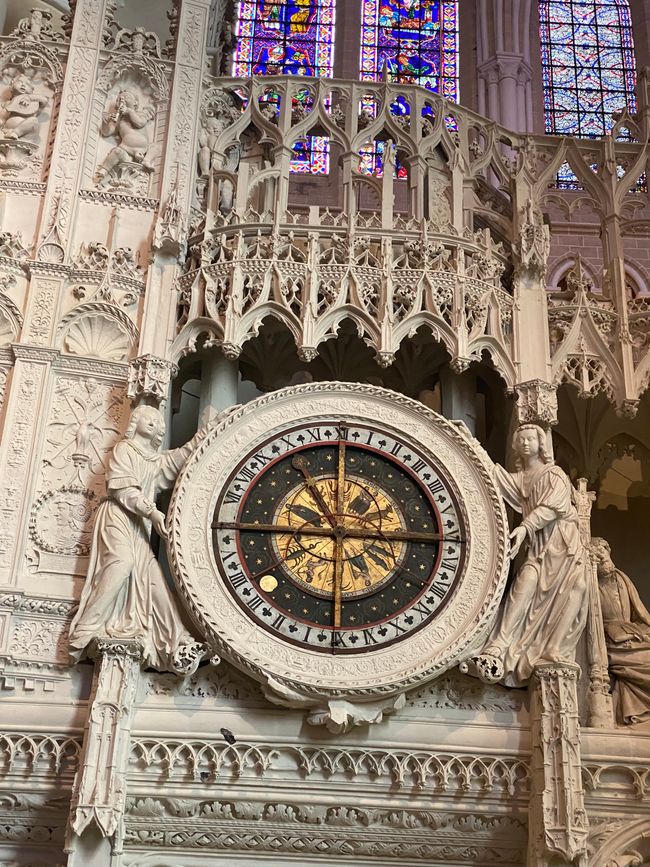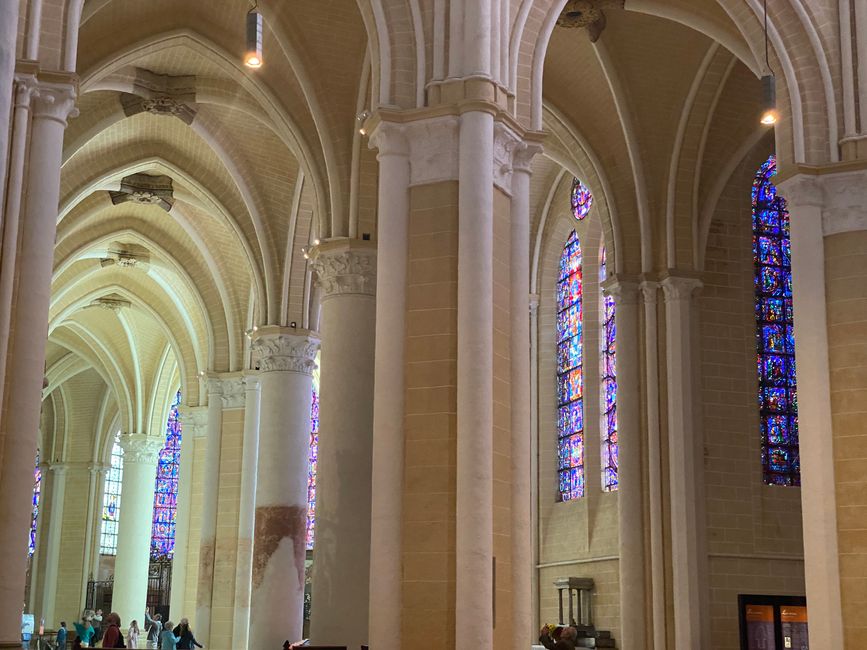Poitiers, Chartres, two great places
ప్రచురించబడింది: 25.05.2024
వార్తాలేఖకు సభ్యత్వాన్ని పొందండి
Christian is a little unlucky sometimes because he is married to a teacher. That means I want to do history every now and then!
He experienced this first hand in Poitiers and Chartres, because I almost forced him to make these stops. (It sounds mean, but maybe he wanted to do the Loire, where I think the Loire and Perigord might need more time!) Of course, we also always looked to see what there was to hike there, but unfortunately that wasn't always very successful. Near Poitiers we went on a hike along the river, which was very muddy, but at least it didn't rain, even when we arrived in the city, which according to one of my textbooks is supposed to be the birthplace of Charlemagne (but that wasn't mentioned anywhere else, because they probably didn't keep records that precisely!)
Poitiers is a cozy town with a Romanesque church and a Gothic cathedral, which was built by Elinor of Aquitaine, the mother of King Richard the Lionheart. Poitiers was once English, then French, but today the town has all the charm of France, and we were delighted. It wasn't as busy as I would have expected. Tourists tend to go to Tours or Bordeaux, because Poitiers is at these crossroads. I found the town very beautiful, we had a nice meal, even something that was doable for me in terms of diet, found a wonderful tea and coffee shop and then drove off hiking in the VW bus without any problems, after the satnav first guided me past the car park and we had to take a 3-kilometer detour thanks to the complicated road system. Poitiers is a university town, very enthusiastic about cycling and has a lot to offer.
Our next cultural stop was somewhat connected to my school days, as the town of Lucé is Traunreut's twin town, so I was in the area 32 years ago. I couldn't find the way to the youth hostel in Chartres, but the town was still wonderful, not overcrowded, charming, and had a market today and the first Gothic cathedral in France. I remembered the town a little differently, I thought I remembered stone facades, but here everything was well plastered. Chartres is in the Paris suburbs, but it is still quiet and hardly visited.
Admission to the gigantic cathedral is free, just like the church and cathedral in Poitiers, which surprises me a lot. (Sure, in Paris part of the reconstruction of Notre Dame is being financed with the money, but admission already existed before the fire.)
We looked around carefully, I bought a candle for my thoughts and for some people who are no longer with us, and then we simply took in the building, which was copied and implemented in a more delicate way in Paris and Reims. Chartres has the most beautiful leaded glass windows that I know of. Each pane of glass is framed separately, so the glazier and the lead caster must have planned and organized well in advance so that every detail comes into its own. It is like a mosaic made of window glass in the most beautiful colors. Each window tells stories from the Old or New Testament, because for the believers, who mostly could not read at the time, the windows were the illustration of a Bible story that was still told in Latin. It was the picture story, a sermon that not everyone could understand well at the time. (There are still masses in Latin in Chartres today, maybe I should come back tomorrow?)
For me, the windows are the shining highlight of the cathedral, because the blue, also known as Chartres blue, is simply beautiful, especially when the sun shines on them. Today, that was the case!
In the middle part of the church there is also the floor mosaic, the labyrinth, which I did on my knees 32 years ago because that was the custom in the Middle Ages. (Does Mr. Emmerich still remember that?) This time the labyrinth was covered with chairs again because it was the weekend and there is a specific time when it can be visited. I am now sure that we didn't have to do it on our knees back then, but hey, it was fun and other tourists joined in too.....
I'm glad we visited these two places because it was so different from Toulouse and Bordeaux, where there are always a lot of people around, it was more tranquil, cozy and always beautiful to look at!
వార్తాలేఖకు సభ్యత్వాన్ని పొందండి
సమాధానం
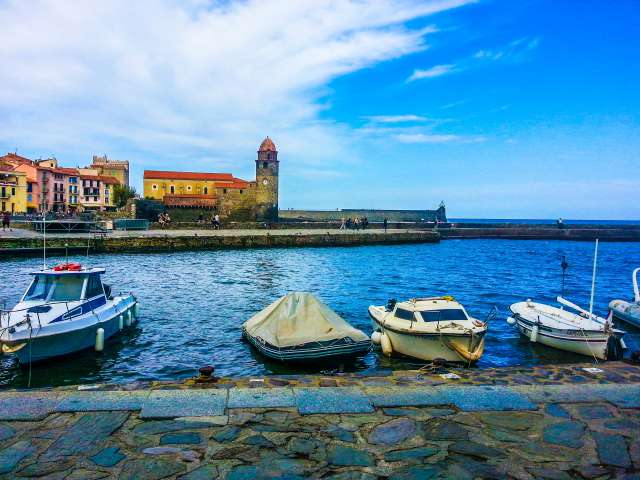
ఫ్రాన్స్ ప్రయాణ నివేదికలు

